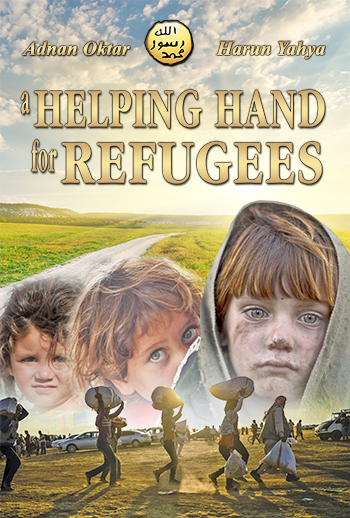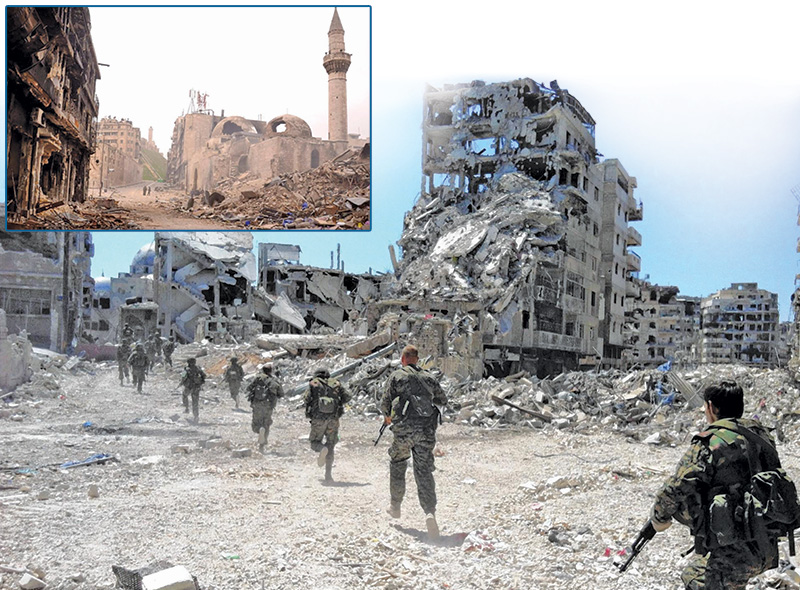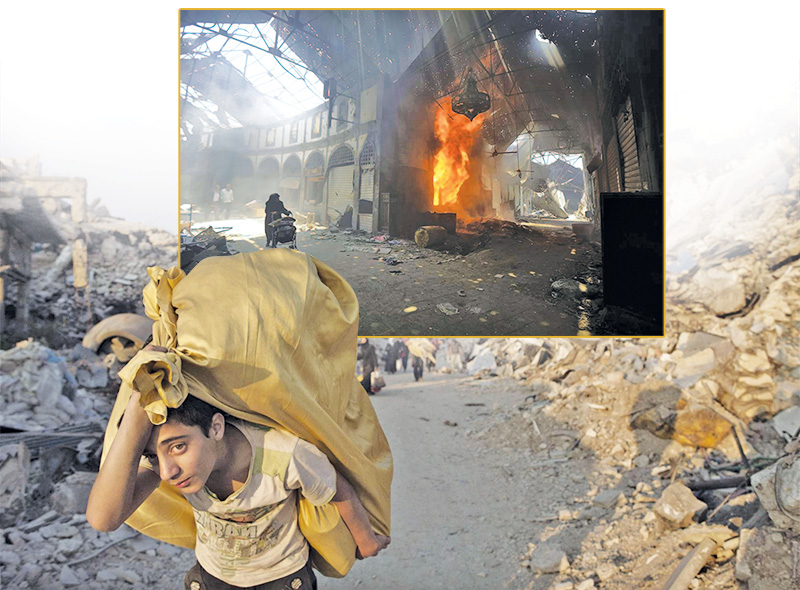Bigotry: The Dark Danger
A Helping Hand for Refugees

DOWNLOAD THE BOOK
CHAPTERS OF THE BOOK
- Introduction
- Supporting refugees is the behavior that will be most pleasing to God
- Adnan Oktar's remarks concerning refugees on A9 TV
- Events in Myanmar are crime against humanity
- A cry for help to the U.N. from Rohingya of Myanmar
- What if you were living in a refugee camp?
- The crime against humanity in Yarmouk must be ended as a matter of urgency!
- Behind the persecution in Myanmar
- How does it feel to be a Rohingya?
- One of the dozens of problems facing Yemen is immigration
- Refugees: Stopping the Madness
- The safety of our Syrian refugee brothers is entrusted to the hospitable Turkish people
- Buffer Zone: A Safe Haven for the Syrians
- A secure zone must be established at once on the Turkish-Syrian border
- The conundrum of Libya's refugees and migrants
- Drowning migrants is a blot on humanity
- Are the boat people a burden for Thailand?
- Deafening silence over Rohingya issue
- What can European countries do against the tide of Migration?
- The Rohingya Muslims are being exiled in their own lands
- Syrian refugees in the 4th year of the crisis
- Syria: The downward spiral of desolation
- Illegal immigrants: Only a statistic in Europe
- Syria’s human tragedy
- Yarmouk cries for help
- The world refugee problem can be solved with love
- Adnan Oktar's Remarks Concerning Refugees on A9 TV
- Europe must step up for humanity
- Nobody to wipe Rohingyas’ tears
- Asylum seekers: A problem of humanity or security?
- It is no economic loss to help Syrian refugees
- A heart for helping refugees
- When conscience fails, children suffer
- Events of global shame
- Will Europe pass the refugee test?
- Condemning refugees to death
- The European refugee crisis: Only if there were some empathy
- The priority in Libya must be to establish love and affection between the blocs: Consensus will then come naturally
- Refugees with no great expectation
- Walls cannot be a solution to security issues
- Refugees not a threat, but an important asset for Europe
- What will election victory bring to the people of Rohingya?
- Humans have rights on paper, but apparently not in real life
- EU, Turkey find silver lining
- Refugees are the victims of the Paris attacks, not its perpetrators
- Being leaderless is the reason behind the oppression Muslims suffer
- The EU is in danger of taking Turkey for granted
- Conclusion
< <
22 / total: 48
Syria: The downward spiral of desolationMiddle East Monitor - 31 March 2015
The fifteenth of March this year marked the beginning of the fifth year of the civil war in Syria. With all the brutality that we've witnessed over the last four years, we might have lost track of the causes of this civil war, horrifying in every sense of the word. The people of Syria were initially inspired by a desire for change and political reforms under the influence of the Arab Spring. In their quest for a better future, they engaged in largely peaceful demonstrations against the decades-old and oppressive Ba'ath regime. Their motive was to reject the Ba'ath regime that had long denied them any of the freedom and dignity that every human being deserves. In this quest, what started as a spark of hope for a better future turned into a nation devastated by war and reduced to rubble. Today Syria has become a wretched country of ruined cities, towns and desperate people. As the Syrian war has now entered its fifth year, almost every news outlet ran stories covering the misery of the country and the ineffable human suffering it has witnessed. These are the horrific stories of people, even children, who have to spend their daily lives under the shadow of sniper's bullets. In the cities we live in it is hard to imagine a child being shot dead in the nursery school where he is taken care of; but in a city like Aleppo, it is not a remote possibility to witness a five-year-old being killed while playing in the nursery playground.22 The children of Syria have experienced what no child in this world should ever have to. Helicopters hovering around, explosive-packed barrel bombs, fighter planes, missiles, artillery; these are the things they see on a daily basis instead of toys or playgrounds. Little babies' sleep is disrupted by falling bombs. Sometimes their parents grab them in frantic haste, being forced to flee on foot to nearby villages. In most cases, there is no escape from a barrel bomb, a rather crude improvised explosive device. It is constructed from large oil drums, water tanks or gas cylinders filled with scrap metal, nails and high explosives.
Regime forces routinely carry out barrel bomb attacks during which an average of 250 kids each month lose their lives. In the Cobar region of Damascus, medics have had to operate on little children with no anesthesia. In the cities, there are tens of thousands of homeless crammed into the rubble of bombed-out buildings. Every statistic, every figure, every photograph of Syria and its people are heart-wrenching. Across Syria, there are scores of missile strikes and bombings on a daily basis. Around 210,000 people killed, 1.5 million civilians seriously injured, at least 200,000 detained, 2400 reportedly missing: 10.9 million people have been displaced.23 What was once a home to a texture of cultures, ethnicities and faiths has been entirely shattered in these past four years. On these lands, the Sunni, Shiite Muslims, Christians, Kurds, Alawites, Yazidis and many other communities making up the social fabric of the country used to co-exist in peace for centuries. However the war has torn apart the various sects and communities and turned once-friendly groups against one another, making things even more complicated and difficult. There is also another aspect of the Syrian conflict. Outside Syria there are three million refugees who try to survive in Lebanon, Turkey and Jordan. In these camps, each day brings a fresh challenge to making ends meet. After having gone though unspeakable afflictions they could only make it to these camps where they now live virtually destitute in difficult conditions. Meanwhile a generation of young Syrians has grown up unschooled with only minimal access to information, thus leaving them susceptible to being radicalized. Syria has become synonymous with human tragedy in the early 21st Century. However, until stability is established, the international community must recognize its responsibilities. In this sense, at least our conscience must not fail us in providing the necessary aid to those affected by this brutal, ongoing war. This article was published in Middle East Monitor: Related Links: Link of Article in English: Link of Article in Turkish:
Footnotes22 http://www.independent.co.uk/voices/comment/in-aleppo-all-i-think-about-is-how-my-family-will-survive-shelling-starvation-and-the-snipers-bullet--but-we-are-still-the-lucky-ones-10107104.html 23 http://www.aljazeera.com/indepth/interactive/2015/03/left-syria-150317133753354.html |
22 / total 48
You can read Harun Yahya's book A Helping Hand for Refugees online, share it on social networks such as Facebook and Twitter, download it to your computer, use it in your homework and theses, and publish, copy or reproduce it on your own web sites or blogs without paying any copyright fee, so long as you acknowledge this site as the reference.


